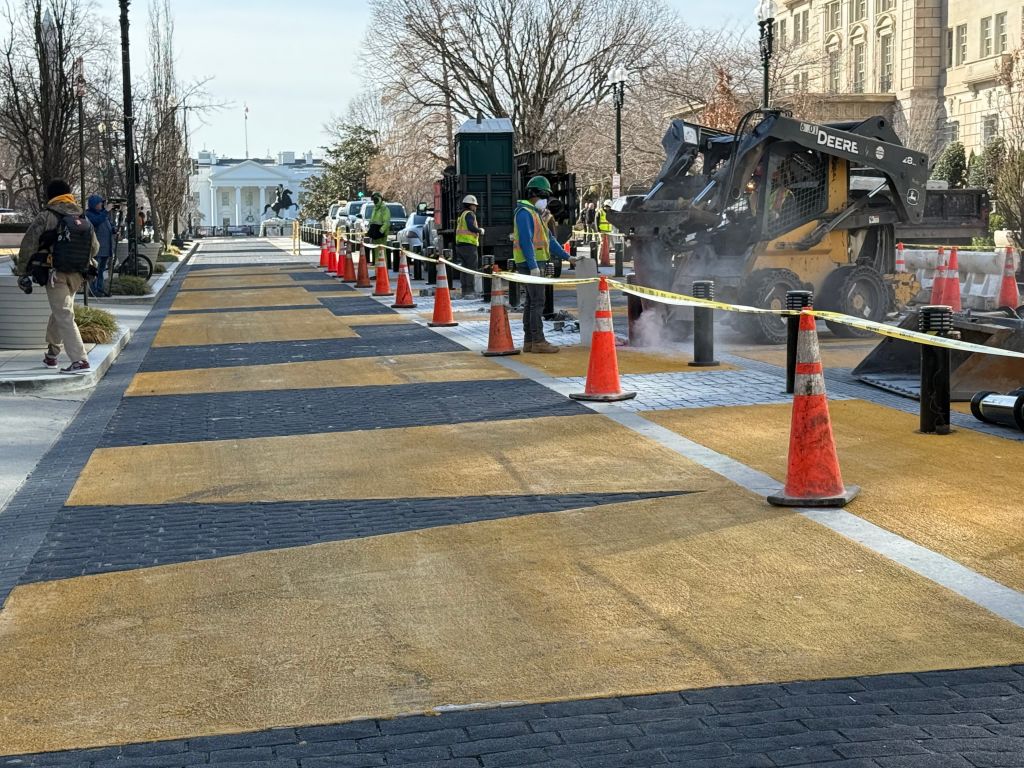I grew up in a home surrounded by American history books and parents keen on teaching me Black history before, despite, and outside of slavery. But when I was 17, I listened to my peers confidently claim that slavery had no economic effect on the U.S. It was then that I realized the lack of diverse history not only hid my people’s story, but harmed all students by gatekeeping necessary knowledge for critical thinking about the historical context of the United States.
[time-brightcove not-tgx=”true”]
This dynamic has unfortunately intensified. In 2023, Florida announced that students would be taught how Black people enslaved in the U.S “developed skills which, in some instances, could be applied for their personal benefit.” When I read this news, rage burned hot in me at the audacity to credit slavery for Black people’s survival instead of their own tenacity through treacherous circumstances. Instead of moving toward a curriculum which might add complexity to Black people’s humanity in U.S history, lessons on slavery would generalize our story more than when I was in school.
Today, the attempted erasure of Black history is on the rise. The removal of Black Lives Matter Plaza, funding cuts for public broadcasting, the Department of Defense proclaiming “identity months dead,” and the sudden firing of Carla Hayden, the pivotal librarian of congress who helped bring diverse perspectives to public knowledge, have all fueled panic among history buffs and teachers across the nation.
Amidst President Donald Trump’s actions such as these, the phrase, “Black History Month is cancelled” started trending on TikTok, where I teach Black history. However, governmental acknowledgement and protection of Black history are certainly key, we must remember that the government does not hold the power to cancel or erase Black history. Understanding this is necessary to keep hope for the fight to improve public school history education.
Read more: Honest American History Shouldn’t Be Divisive
In America’s public schools, too often our teaching of Black history starts with slavery—skipping over the countries’ kingdoms and cultures of those before they were kidnapped. Lessons left their traditions, languages, and idiosyncrasies in Africa, creating a plain canvas for curriculums to easily label Black people as “slave” and disregard humanity until it became convenient for a whitewashed U.S history. Curriculums teach about the laws and governmental acts in place that withheld education and advancement from the enslaved, but skip over the intellect and radical acts Black people achieved anyway. Those like Elizabeth Freeman, who won a court case securing her freedom in Massachusetts before the civil war; Benjamin Banneker, a Black scientist who contributed in measuring the boundaries for the Nation’s capitol; and Mary Jane Richards, the Black woman who went undercover as a spy in Jefferson Davis’s household to help the Union win the Civil war, prove that making Black history has never required permission first from a governmental force.
For instance, stories of African ancestry have been passed down for generations. History and messages were shared through field hymns and songs. In the worst conditions, history was kept alive. Over generations, these practices have been passed down, evolved, and adapted into many parts of Black culture today. Even when laws made our origins and abilities dangerous to exist, we have never asked U.S permission before taking our history into our own hands.
The 1960s ushered in a time of Black pride and liberation with the creation of the Black Panther Party by Huey P. Newton. Part of the programming within the Black Panther Party was the importance of Black history education. In step five of Newton’s ten point program, education is demanded “that teaches us our true history and our role in the present day society”. With experiments like The Mamie Clark Doll Study, which proved that segregation and discriminatory laws and regulations in the U.S taught children to see themselves as inferior and inherently unequal, the purpose of teaching Black history was to change beliefs in the Black community that our identities are not our enemies, but a gift. Learning of the victories and complexities in Black people’s history not only built self-worth, but acted as a non-physical weapon for self defense to survive oppressive systems.
Read more: Trump’s National Guard Deployment Shows America What Black Communities Have Always Known
The Black Panther Party was notoriously berated and demonized by the FBI and local police, who in one instance raided and urinated on a Chicago party branch’s free breakfast program. Yet, the Black Panthers’ passion for Black pride has grown larger than the forces used to harm it. Their teachings continue to spark interest in Black history because it shows us that so long as oppressive systems continue to be relevant to Black people’s struggle, the act of preserving Black history not only honors our identity, it fights back against an inactive government.
My grandmother recently handed me a reference book from the high school she taught English at in the 80s. It was a book with information on 100 notable Black figures. Inside, it teaches about men and women like Ida B. Wells, Carter G. Woodson, and Gwendolyn Brooks. This book is a baton which has been passed down to me.
We must keep advocating for governmental recognition of a detailed and diverse American history in U.S public schools, but it’s crucial to remember Black history education is not dependent upon government and does not require permission to learn it. The strength of Black history has been built on Black communities, our resilience, and impact on society. Black history will never be erased—because it thrives and lives inside each and every Black family.

